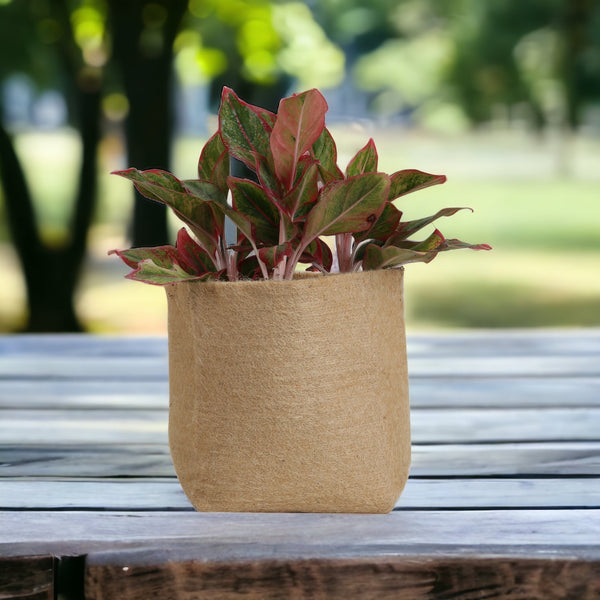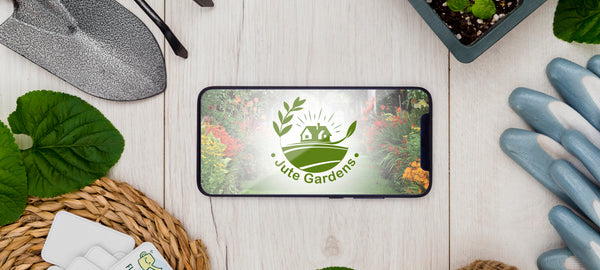
Why Jute Fiber Pots are the Future of Sustainable Gardening
In the rapidly evolving world of gardening, sustainable practices are emerging as an imperative rather than a choice. Gardeners, both seasoned and new, are constantly looking for innovative solutions to nurture their plants without harming the planet. Enter jute fiber pots - a game-changer in the world of eco-friendly gardening. But why are jute pots touted as the future of sustainable gardening? Let’s dive in to find out.
What is Jute?
Jute is a long, soft, and shiny fiber that can be spun into coarse, robust threads. It's derived from plants in the Corchorus genus and is one of the most affordable natural fibers, second only to cotton. Jute is biodegradable, renewable, and plays an integral role in environmental protection.
The Sustainability of Jute Fiber Pots
-
Biodegradability
Jute is 100% biodegradable, which means that it breaks down into natural elements within one to two years. Unlike plastic pots, which can take hundreds of years to decompose, jute pots become one with the soil, enhancing its structure and fertility. There are no toxic residues left behind, making them a clean and environmentally responsible choice.
An academic study on the biodegradability of jute and its applications in various products can be accessed through ScienceDirect: Biodegradability of Jute Fabric Reinforced Poly(Lactic Acid) (PLA) Green Composites.
-
Low Environmental Impact
Growing jute has a relatively small ecological footprint. It requires minimal pesticides and fertilizers, making it a crop that aligns with sustainable farming practices. In contrast, the production of plastic and ceramic pots often involves processes that are harmful to the environment.
-
Energy Efficiency
The manufacturing process of jute pots requires significantly less energy compared to plastic or ceramic pots. With global efforts to reduce energy consumption, this factor further cements jute's position as an eco-friendly alternative.
-
Carbon Sequestration
Jute plants are known for their ability to absorb large amounts of CO2 and release oxygen, acting as a natural carbon sink. This process contributes to the reduction of greenhouse gases in the atmosphere, supporting global efforts to combat climate change.
-
Water Management
Jute pots are excellent in managing water for plants. They naturally wick moisture and allow for optimal aeration, reducing the chances of over-watering and root rot. The natural properties of jute assist in maintaining the right level of moisture, promoting healthier plant growth.
-
Economic Sustainability
By choosing jute, gardeners also support the livelihood of farmers and workers in the jute industry. It provides employment to millions in countries like Bangladesh and India, boosting the local economy and promoting fair trade practices.
A detailed overview of the jute industry and its environmental benefits can be found on the Food and Agriculture Organization (FAO) website: Jute, Kenaf, Sisal, Abaca, Coir, and Allied Fibres - Statistics.
Aesthetic and Functional Benefits
Beyond sustainability, jute fiber pots also offer aesthetic and functional benefits. They blend effortlessly with natural surroundings, adding a rustic charm to gardens. Their flexibility allows for easy handling, and their permeable structure promotes healthy root development.
Jute in Action: A Real-Life Example
Jute Gardens, a renowned eco-friendly e-commerce business, offers a range of jute fiber pots, vertical gardens, and grow kits. They are an example of a brand that has embraced the potential of jute, providing gardeners with environmentally conscious solutions without compromising quality or style.
Future Perspectives
The shift towards sustainable living is more than a trend; it's a global movement. As more gardeners become aware of the environmental impact of their choices, jute fiber pots are positioned to become a standard in eco-friendly gardening.
Conclusion
Jute fiber pots are a symbol of a new era in gardening where environmental stewardship, functionality, and aesthetics coalesce. They are an embodiment of the harmony that can exist between human needs and nature's wellbeing.
Please find more information on Jute Gardens’ jute pots here: Grow Pots (jutegardens.com)
From their biodegradability to carbon sequestration and water management, jute fiber pots check all the boxes for sustainable gardening. They represent a step forward in responsible consumption, reflecting a conscious effort to align our hobbies and passions with the needs of our planet.
By choosing jute, we're not just nurturing our gardens; we're sowing seeds for a sustainable future. Join the movement and make jute fiber pots an integral part of your gardening practice. Together, we can grow greener gardens and a healthier world.
Frequently Asked Questions (FAQ)
Q1: What is jute, and why is it used in gardening pots?
A1: Jute is a natural fiber derived from plants in the Corchorus genus. It's biodegradable, renewable, and requires minimal resources to cultivate. Jute is used in gardening pots for its environmental benefits, aesthetic appeal, and functional properties such as moisture management and healthy root development.
Q2: How do jute pots contribute to sustainability?
A2: Jute pots are 100% biodegradable, require less energy to manufacture, and have a lower environmental impact compared to traditional pots. They also support carbon sequestration, water management, and economic sustainability by providing livelihoods in the jute industry.
Q3: Can jute pots replace plastic or ceramic pots?
A3: Yes, jute pots are an excellent alternative to plastic and ceramic pots. They offer similar functionality, with added environmental benefits. They are especially suitable for gardeners seeking eco-friendly options.
Q4: How long do jute pots last?
A4: Jute pots are designed to last for the growing season. Over time, they biodegrade, enriching the soil with natural fibers. They decompose within one to two years, unlike plastic pots, which can take hundreds of years.
Q5: Are jute pots suitable for all types of plants?
A5: Jute pots are versatile and suitable for most types of plants, including herbs, flowers, and small vegetables. Their natural moisture-wicking properties make them an excellent choice for various gardening needs.
Q6: How do jute pots impact water management in plants?
A6: Jute pots naturally wick moisture and allow for optimal aeration. This helps maintain the right level of moisture in the soil, reducing the chances of over-watering and promoting healthier plant growth.
Q7: Where can I purchase jute fiber pots?
A7: Jute fiber pots are available through various eco-friendly e-commerce stores, garden centers, and specialty shops. Brands like Jute Gardens specialize in jute products for gardening.
Q8: Can I use jute pots for indoor plants?
A8: Yes, jute pots are suitable for both indoor and outdoor plants. They add a natural and rustic charm to indoor spaces and provide the same environmental benefits as they do outdoors.
Q9: How does jute contribute to the local economy?
A9: Jute cultivation provides employment to millions of farmers and workers in countries like Bangladesh and India. By choosing jute, consumers support local economies and promote fair trade.
Q10: Are there any drawbacks to using jute pots?
A10: Jute pots are designed to be biodegradable, so they won't last as long as plastic or ceramic pots. However, this feature aligns with sustainable practices, and many gardeners view it as a benefit rather than a drawback.

